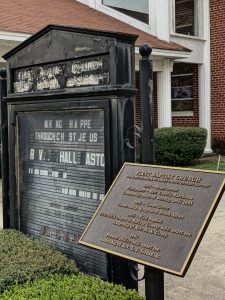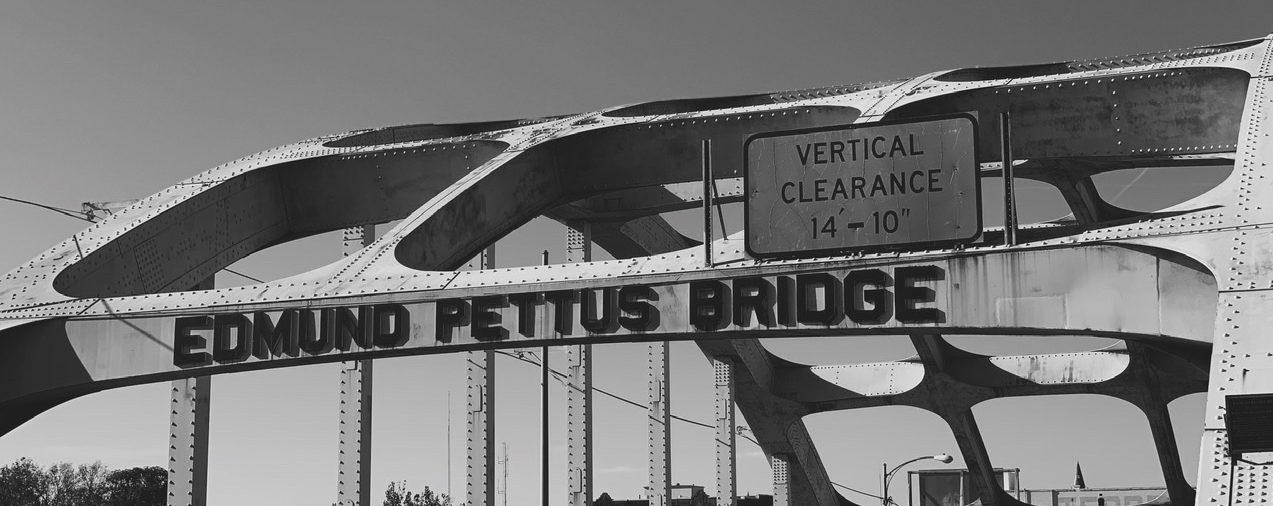Our week ended in the same place it began — at the First Baptist Church. On Tuesday, we’d gathered in a back room of this red-brick building, meeting residents over a dinner of catfish and sweet tea; on Sunday, we filed into the third pew to attend services before traveling home.
That first night at the church dinner, I remember being struck by how frequently our conversations with Mound Bayouans turned to religion. The very first woman I talked to told me that God had drawn her to Mound Bayou to head up a social services center. “I have trust in what He planned for me,” she said.

At college, I think it’s rare to hear such a strong sense of religious purpose expressed so confidently. Princeton’s stone chapel is architecturally beautiful, but not a common gathering place for our whole community. So it was really meaningful to hear again and again about the role of religion in Mound Bayou – from the doctors who said they were guided by their faith towards the field of medicine, to the unofficial town historian who played hymns for us on the piano.
On Sunday, from the moment the choir entered the church in their brightly-colored robes and the pastor approached the pulpit, that strong presence of faith in Mound Bayou became much more palpable. The church was not just a religious service but a community gathering. Right away, the pastor urged those in attendance to cast their vote in the upcoming November election. “Offer a ride to your neighbor,” he suggested. Mound Bayou Mayor Eulah Peterson sang in the choir and, at one point in the service, checked a thick binder to confirm the local candidates running for office. One parishioner read a list of announcements for upcoming events throughout the town. You could feel how tightly the web of community in Mound Bayou was wound; how one’s responsibility in the church wasn’t just to God but to neighbors, figuratively and literally.
While the lines between being a reporter on and a participant in the community had blurred throughout the week, it was on this final day that I felt most conspicuous — I was sitting in a pew and flipping through the hymnbook, but also holding a recorder in the air to catch the voices of the preacher and the sounds of assent from the congregation. I feel very thankful that Mound Bayou and Mayor Peterson were gracious enough to welcome us into their church, especially because our group was majority white. “Black churches” have a long and rich history in America, and Mound Bayou, as the oldest black township in the country, contains an important piece of that heritage.
I don’t think I appreciated how much my own hometown church drew my community together until I left for college. I took for granted the feeling evoked by seeing crowded pews on a Sunday morning or by standing beside my younger brother during his Confirmation ceremony, when he was accepted as an adult into the faith. The church was where our community mourned together at funerals and celebrated at Baccalaureate during high school graduation. One of the most remarkable things about the tiny town of Mound Bayou is its ability to sustain so many thriving churches — so many places for its residents to come and be together.
